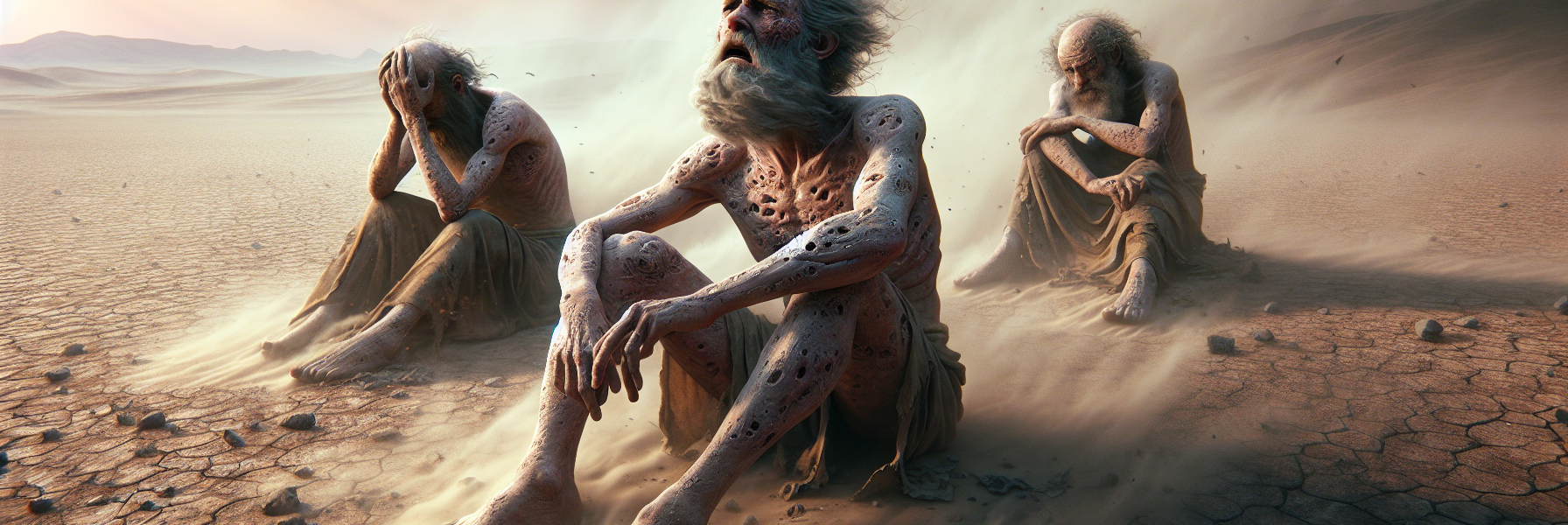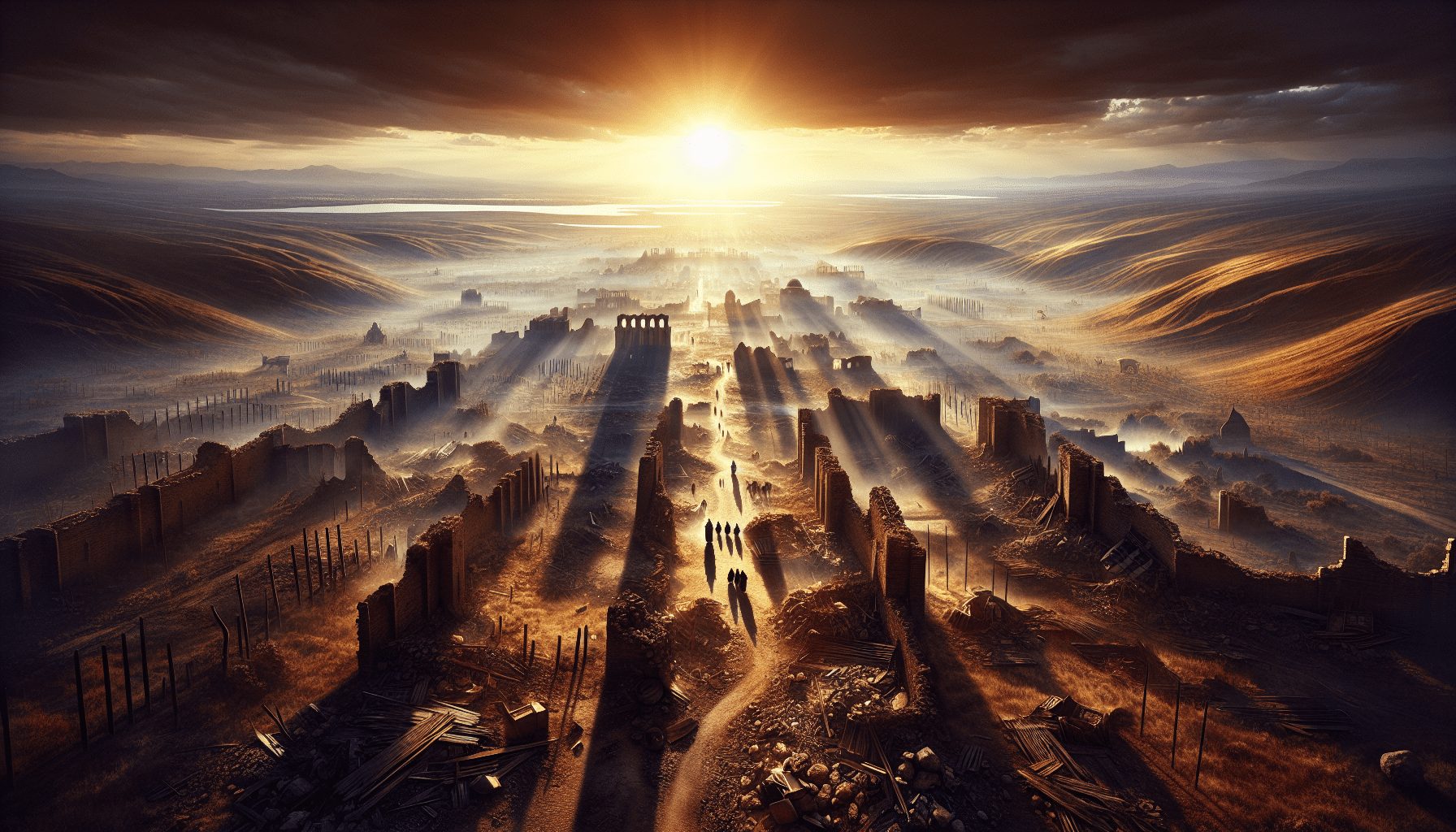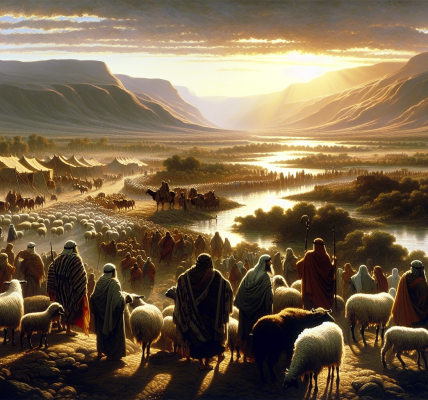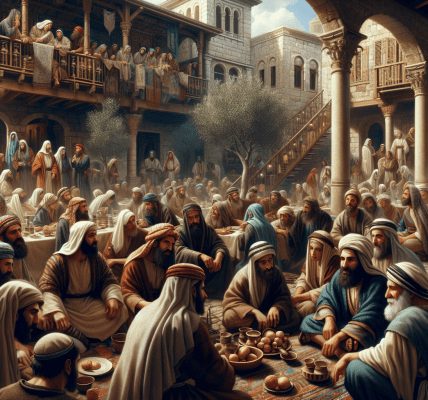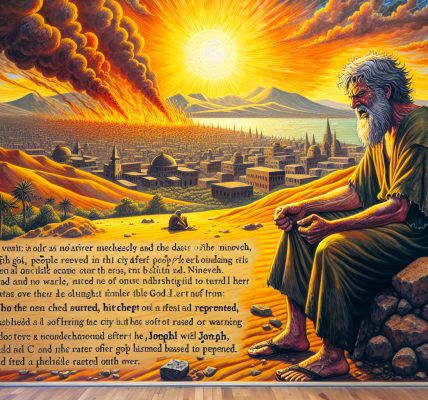**Job’s Lament: A Cry of Desolation and Hope**
The scorching wind howled across the desolate plains of Uz, carrying with it the dust of despair. Job sat upon the ashes of his former life, his body covered in painful sores, his spirit weighed down by grief. His three friends—Eliphaz, Bildad, and Zophar—had come to comfort him, but their words had become daggers, twisting in his wounds rather than soothing them.
With a heavy sigh, Job lifted his weary eyes toward heaven, his voice trembling yet resolute.
*”I have heard many such things; miserable comforters are you all!”* he cried, his words sharp with anguish. *”Shall windy words have an end? Or what provokes you that you answer? I also could speak as you do, if you were in my place; I could join words together against you and shake my head at you. But I would strengthen you with my mouth, and the solace of my lips would assuage your grief.”*
His friends shifted uncomfortably, their brows furrowed in disapproval. They had come to instruct him, to correct what they believed must surely be hidden sin. But Job knew his own heart—he had walked uprightly before God, and yet suffering had found him.
Job clenched his fists, his breath ragged. *”Even if I speak, my pain is not assuaged, and if I forbear, what am I eased? But now He has worn me out; You have made desolate all my company. You have shriveled me up—it has become a witness; my leanness rises up against me and testifies to my face.”*
His voice cracked as he continued, his words painting the torment of his soul. *”His wrath has torn me and hated me; He gnashes at me with His teeth; my adversary sharpens His eyes against me. They have gaped at me with their mouth; they have struck me reproachfully on the cheek; they gather themselves together against me.”*
Job’s body trembled as he spoke, his mind reliving the horrors that had befallen him—the loss of his children, the ruin of his wealth, the betrayal of his health. Yet even in his despair, he did not curse God. Instead, he wrestled with the mystery of divine justice, his faith battered but unbroken.
Then, in a sudden shift, his voice softened, his gaze turning inward. *”I was at ease, but He has shattered me; He also has taken me by my neck and shaken me to pieces; He has set me up for His target. His archers surround me; He pierces my kidneys and does not spare; He pours out my gall on the ground. He breaks me with breach upon breach; He runs upon me like a warrior.”*
The imagery was stark—God as a relentless adversary, an unyielding foe. Yet even in this, Job did not abandon hope. His lament was not the cry of an unbeliever but of a man who still clung to the God who seemed far from him.
Then, in a moment of startling clarity, his voice rose with a fragile yet defiant hope. *”Though He slay me, yet will I trust in Him.”*
His words hung in the air, a testament to faith that endured even in the darkest night. He turned his face toward the heavens once more, his eyes filled with tears yet burning with an unquenchable fire.
*”Even now, behold, my witness is in heaven, and He who testifies for me is on high. My friends scorn me; my eye pours out tears to God, that He would maintain the right of a man with God, like a son of man does with his neighbor!”*
Job’s plea was not for vengeance, but for vindication—not merely for himself, but for the justice of God’s own character. He knew that though the heavens seemed silent, the Judge of all the earth would do right.
And so, in the ashes of Uz, Job’s lament became a prayer, his suffering a crucible, and his faith—though shaken—unbroken. For even in the depths, he knew that his Redeemer lived, and that one day, he would see God face to face.
